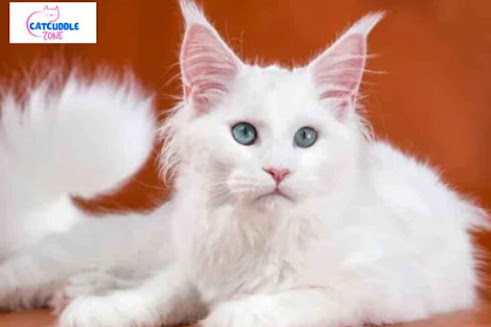Why Does My Cat Smell So Good? A Complete Scent Guide
Have you ever leaned in to snuggle your cat and wondered, “Why does my cat smell so good?” Whether it’s a subtle scent of sunshine, a touch of sweetness, or even a warm, comforting smell that’s hard to describe, many cat owners have noticed this delightful phenomenon.
Cats are famously clean creatures—but their appealing scent goes beyond simple hygiene. In this complete scent guide, we’ll explore the reasons behind your cat’s irresistible aroma, what it means, and when a smell might be a cause for concern.
1. Cats Are Natural Grooming Experts
Cats spend 30–50% of their day grooming, using their rough tongues to clean their fur, remove dirt, and distribute natural oils. This self-grooming habit keeps their coat soft, shiny, and relatively odor-free. In fact, a healthy cat rarely smells “bad.”
Their saliva contains enzymes with antibacterial properties, helping to reduce any potential smell-causing bacteria. The result? A soft, neutral, and clean scent that’s unique to cats.
2. Fur Absorbs the Environment
One reason your cat may smell amazing is that their fur acts like a sponge, absorbing the scents from your home—especially the pleasant ones. If your cat naps in the sun, on fresh laundry, or near a scented candle, you may notice their fur smells faintly of those places.
Some people describe their cat as smelling like:
-
Fresh linen
-
Sunshine
-
Vanilla or honey
-
Warm bread (yes, the famous “catloaf” smell!)
These comforting aromas are not only from their environment, but also from your emotional connection to them. When we love something, we often associate it with pleasant memories—including smell.
3. Natural Pheromones and Scent Glands
Cats also have scent glands in areas like their cheeks, forehead, and the base of their tail. These glands produce pheromones, which are chemicals used to communicate with other cats—but they’re usually undetectable to humans.
Still, some people are particularly sensitive to their cat’s natural scent, which may register as faintly sweet, earthy, or musky (in a good way). Rubbing against you, or “headbutting,” is how cats mark you as part of their safe space—and when they do that, you may catch a whiff of their natural, comforting smell.
4. Diet Affects Scent (for Better or Worse)
Believe it or not, what your cat eats can influence how they smell. A high-quality diet rich in protein and omega-3s promotes healthy skin and fur, which helps reduce odor and can make their coat feel silkier and smell fresher.
Cats fed low-quality food or suffering from allergies may develop greasy, flaky skin or an unpleasant odor. If your cat normally smells good but suddenly has a bad body odor, it’s worth reviewing their diet or checking for underlying issues.
5. Your Cat Smells Like “Home”
Smell is deeply connected to memory and emotion. If your cat brings you joy and comfort, your brain may associate their natural scent with feelings of calm and love. That’s why so many people describe their cat’s smell as “addictive” or “the best scent in the world.”
Your bond amplifies your perception of their scent—just like a favorite sweater that smells like a loved one.
6. Kittens and the “Baby Scent” Effect
Some cats, especially kittens, have a faint sweet smell that’s similar to a newborn baby. This can be due to:
-
Their limited exposure to odor-causing environments
-
Higher grooming by the mother cat
-
The lack of strong hormones, especially in neutered/spayed kittens
Many owners say this “kitten smell” fades with age, but it can be an incredibly soothing part of early bonding.
When Should You Be Concerned About Cat Odor?
While most cats smell neutral or good, a sudden change in your cat’s scent could be a red flag. Here are a few odors to watch for:
-
Fishy smell from the rear: May indicate anal gland issues.
-
Rotten or sour breath: Possible dental disease or digestive problem.
-
Strong urine odor: Could signal a urinary tract infection or dehydration.
-
Musty or yeasty body odor: Might point to a skin infection or allergies.
-
Chemical smell: Could mean your cat came into contact with a toxic substance.
If your cat’s scent changes suddenly or becomes unpleasant, consult a vet right away. Cats are experts at hiding discomfort, so unusual smells are sometimes your first clue that something’s wrong.
How to Help Your Cat Stay Smelling Great
Want to keep enjoying that wonderful kitty scent? Here are a few gentle tips to maintain your cat’s cleanliness and comfort:
-
Brush regularly to remove excess fur and dander
-
Provide a clean, cozy space for resting and grooming
-
Feed a balanced, high-quality diet
-
Schedule regular vet checkups to stay ahead of dental or skin issues
-
Avoid heavy perfumes or harsh cleaning sprays that could affect their natural scent
Remember: cats clean themselves. As long as your kitty is healthy and has a clean environment, they’ll naturally smell good most of the time.
Final Thoughts
So, why does your cat smell so good? It's a combination of natural grooming, environment, pheromones, and—most of all—your emotional bond. That comforting scent you adore is as unique as your cat and the connection you share.
As long as your cat smells fresh and seems healthy, consider it a sign of their overall well-being—and another reason to appreciate their quiet, magical presence in your life.
Want more feline insights and cuddly facts? Visit the full blog at:
👉 https://catcuddlezone.com/why-does-my-cat-smell-so-good-a-complete-scent-guide/




Comments
Post a Comment